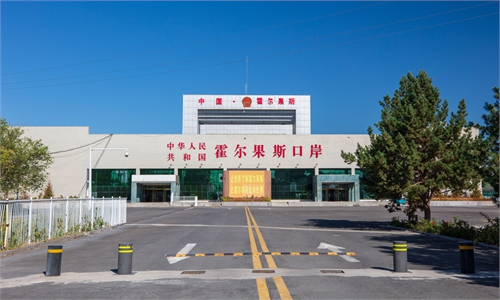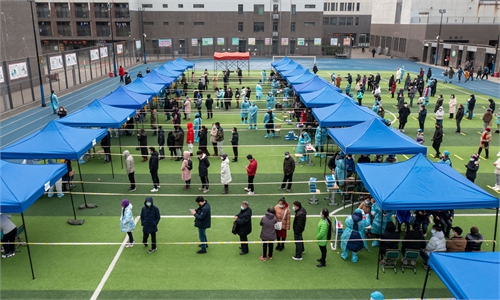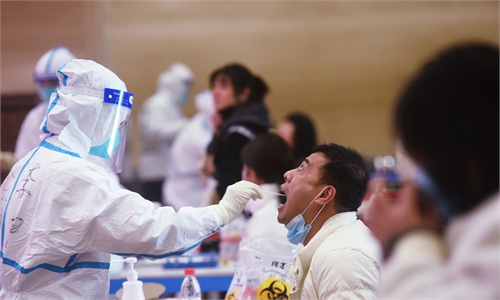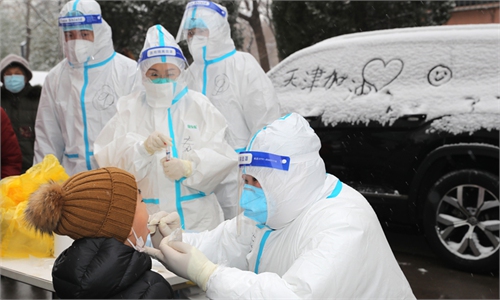Hangzhou's Omicron may have spread three generations; spillovers show control pressure of smaller cities amid Spring Festival travel
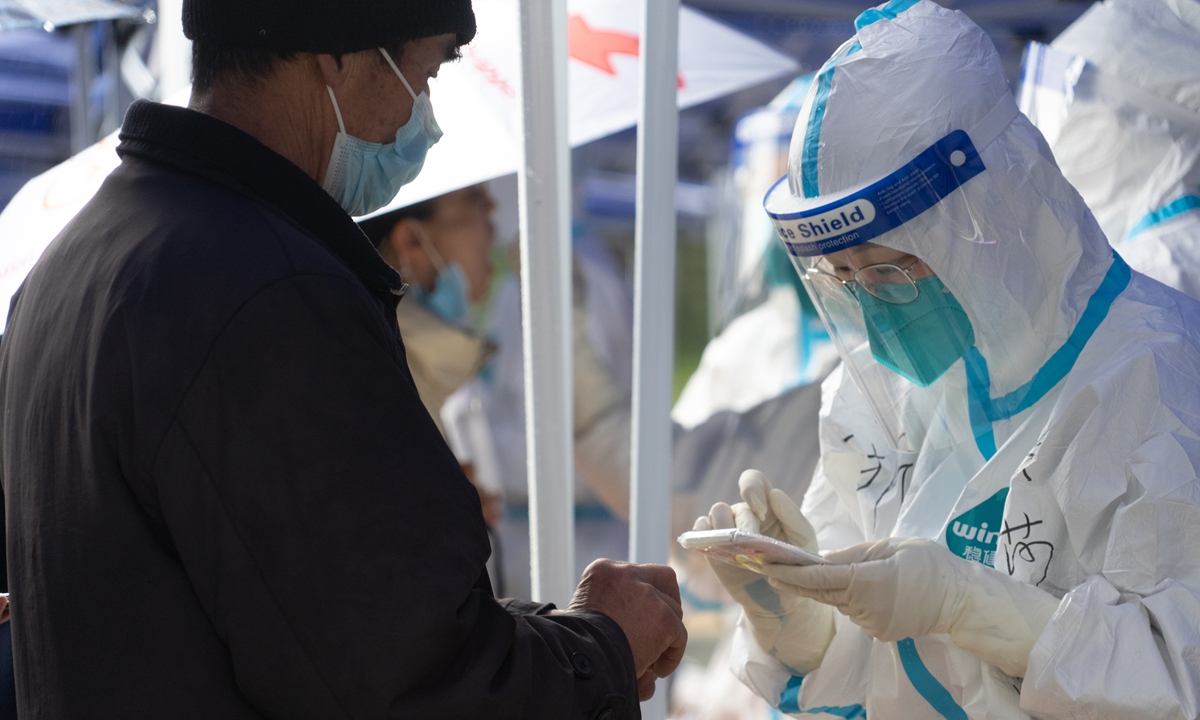
Photo: CFP
With Hangzhou in East China's Zhejiang Province fighting a battle against the Omicron variant, four cities in three provinces have found infections connected to the Hangzhou resurgence, exposing control pressure amid residential mobility ahead of the Spring Festival.
But experts believed the resurgence was detected early and local authorities are equipped with precise control measures to deal with sporadic spillovers, striking a balance between epidemic control and festival activities.
Hangzhou has registered 30 domestically transmitted infections of the Omicron variant as of Friday afternoon, which were traced back to a firm that handles imported goods. The earliest infections showed symptoms on January 20, and the virus has spread across three generations, so the breakthrough of the virus might be early- to mid-January, local health authorities said at a Friday press briefing.
The Hangzhou outbreak has spilled over to Anshun in Southwest China's Guizhou, Shangrao in East China's Jiangxi and Luotian, and Huanggang in Central China's Hubei, a more extended landscape than previous domestic Omicron flare-ups.
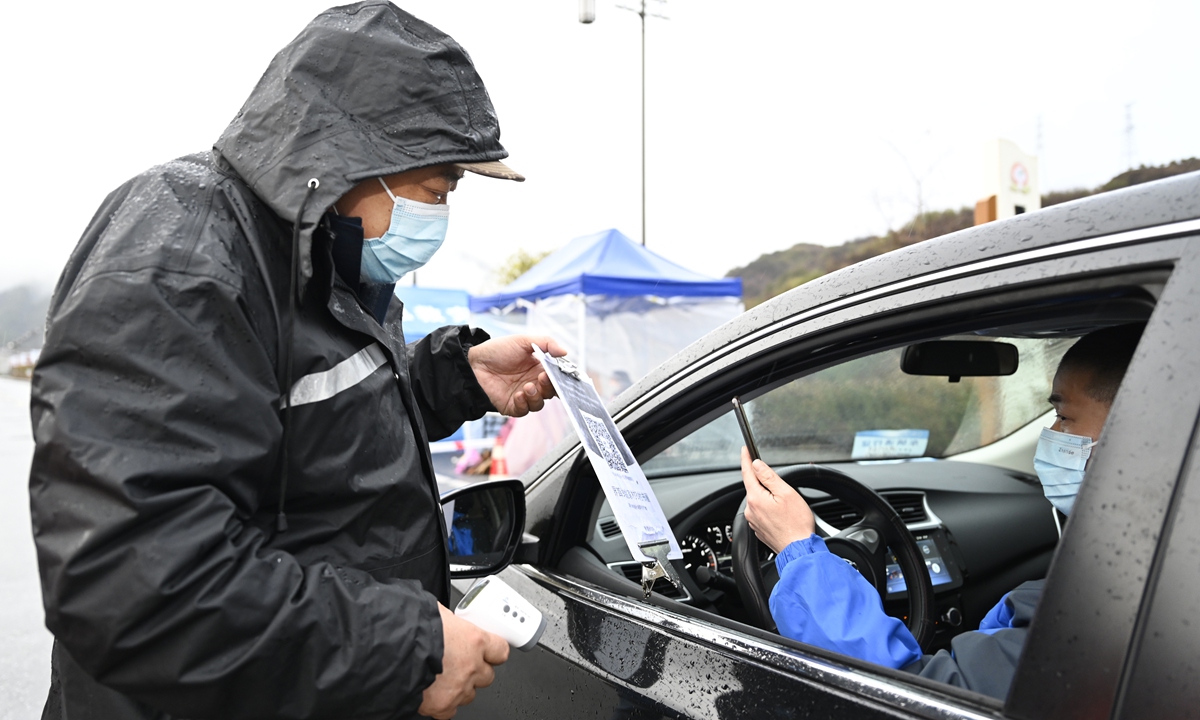
Photo: CFP
Experts pointed out that the outbreak occurred at a time when migrant workers returned to their hometowns for the Spring Festival, which increased the difficulty of controlling the contagion and highlighted the importance of timely prevention measures in lower-tier cities.
Jiangxi requires 14 days of collective quarantine for people from high- or medium-risk areas, seven days of collective quarantine and seven days of home quarantine plus five nucleic acid tests for people from a county or district with a level of risk. Returnees from low-risk areas are required to undergo a nucleic acid test within 24 hours upon arrival.
Other provinces have similar policies for returnees, and in practice, since most places require returnees to report their returning plans to communities in their hometowns, the community would provide travel advice to returnees in regard to their situations, the Global Times learned.
A Hangzhou resident who planned to return had registered with her hometown community in Luoyang, Central China's Henan Province. The day after Hangzhou reported of an infection, the resident received a phone call from the community to check on her health status and update her with new control policies for people from Hangzhou.
Hangzhou returnees from districts without a risk level of city are required to undergo seven days of quarantine and seven days of health monitoring. All returnees from outside Henan are required to undergo a nucleic acid test taken within 48 hours, the resident learned before cancelling her travel plans for fear of being stranded in Luoyang.
Wang Guangfa, a respiratory expert at Peking University First Hospital, told the Global Times on Friday that low temperatures in winter, mobility during the Spring Festival and higher transmission risks from inbound personnel and products from overseas combine together to pose even tougher challenges for domestic epidemic control.
Flare-ups cannot be eradicated amid such realities, and China's dynamic zero strategy aims to put out an outbreak quickly when it occurs to keep the overall infection rate at a very low level, Wang said.
With such goals, local authorities design policies for people of different risk levels and communities become an important way to provide safety in communities, Wang said, adding that China's strong testing capabilities also enable people to test spontaneously, contributing to the prevention and early discovery of infections.
People who have travel plans, even if not required, are encouraged to take tests before and after their travel to monitor their health status. People are also encouraged to reduce the scale of banquets and take protective methods during the holidays, according to a press conference on January 22 by State Council's information office on COVID-19 control during the Spring Festival.
